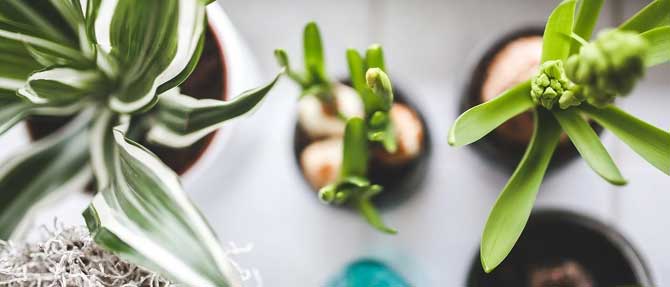Summer is finally here and it's brought longer days, warm nights, and sunshine (fingers crossed). We're all adjusting by making sure we're drinking plenty of water, putting on plenty of SPF, and trying to stay out of the harsh midday sun. But just like us, our plant babies need to make some adjustments in order to thrive during the summer months. Below we've listed our top tips for summer houseplant care to help you get the most out of your plants this season.
Water
Plants use water to help transport the nutrients from the soil to help them grow. During Summer your plant will need more nutrients, as it is actively growing and therefore will need to be watered more frequently. We recommend watering your plants in the early morning or evening when the sun is at its weakest point, this will avoid your plant burning or water evaporating. If you find your soil is drying out too quickly you can try adding rocks or mulch on top of the soil to help retain moisture.
Sun
As the warmer months drag on, the heat and sun can cause damage to your plants that were previously in the perfect spot. If your plants are in direct sunlight, we recommend pulling a sheer curtain over the window, particularly during the middle of the day. Moving your plants away from the window is also an option.
If you are unsure whether the light your plant is receiving is too hot, place your hand under the light around midday, if it's too hot for you, it's too hot for your plant. Plants that naturally live in desert conditions, such as cacti are an exception to this rule.
Air-Conditioning
It's nice to have a reprieve from the heat in your own home, but be careful of overdoing it with the aircon. Most indoor plants come from the tropics so prefer their environment to be warm a humid, A/C does the opposite. If you are using one make sure that your plants are not directly in the cold-air flow, and consider ways to increase the humidity levels for your plants.
Pruning
Be sure to prune back any foliage or leaves that are overgrown, unnecessary, or dying. Without pruning, your plant may become susceptible to infection and insects. Be sure not to leave dropped leaves in the soil for too long, as this can attract insects and other pests that may harm your plant.
Fertiliser
If you weren't able to fertilise in spring, summer is your next best chance. Fertilizing can be important for the long-term health of your plants. Ask some of our friendly in-store team which fertiliser is best for your plant.
Those are our top tips for Summer houseplant care! Every plant is different, so don't forget to ask any of our friendly team if you have questions about yours!


















